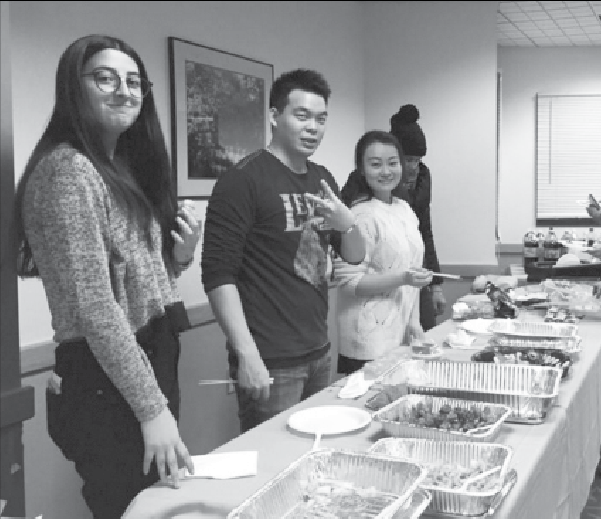Japanese cultural festival brings traditional food and games to Suffolk community
December 2, 2015
The Japanese Student Association brought a festival of games and original dishes to the Bunkasai Festival Thursday.
President and founder of the Japanese Student Association, Tsuyoshi Nakajima, enjoyed making the Bunkasai Festival a unity of traditional Japanese culture, education and entertainment.
“What we thought was that November is the month of culture in Japan, so why not replicate that at Suffolk,” reflected Nakajima.
The Bunkasai Festival, or Cultural Festival, as it is called in Japan, is an annual event where Japanese schools and universities open their doors to parents and the public to celebrate their student’s achievements.
Some of the performances included dances and martial arts, traditional food and games, followed by a talent show performed by the students.
The night was set up with game stations all over the room. For every game they played, a visitor would receive a sticker to fill up a chart that was handed out at the entrance of the event. Whoever completed all the games could win a prize of a Starbucks gift card.
“We wanted the games to be half educational and half active,” said Nakajima.
Applied legal studies sophomore, Yasmin Fersan, was interested in the “write your name in Japanese” station.
“I want[ed] to see how to write my name in Japanese,” said Fersan. “Since I have such an Arabic name, it was interesting.”
However, Fersan’s favorite was the Yo-Yo game, where the player had to pick up a water-filled balloon using paper clips.
“I was used to the Japanese culture because of Tsuyoshi, but I was not familiar with the games, so she told me to come to experience it all,” said Fersan. “It was a lot of fun with the balloons.”
Sophomore advertising major, Rhema Rondina, said the food was a highlight of the night.
“My favorite food was probably the mochi,” said Rondina.
Mochis are colorful rice cakes made out of glutenous rice pounded into a paste and molded into a shape.
“And also the noodles, they were really good,” said Rondina. “I had never had that before. The udon noodles, the thicker one.”
Udon are noodles made with flour, salt, and water, and are normally eaten in hot soup with some meats or vegetables.
Nakajima said the JSA had a hard time finding a restaurant in which the Japanese food was not “Americanized.”
“There are a lot of Japaneses food places in Boston, but not too many where the food is prepared by Japanese chefs,” said Nakajima. “We specifically chose a restaurant where the food is made by Japanese chefs so we could get authentic food and not Americanized Japanese food. It may look unfamiliar because it is something you would not see regularly in America.”
The chosen restaurant was Ittoku, on Commonwealth Avenue, which is a hot spot for Japanese small plates, yakitori & sushi, plus wide choice of sake, according to the restaurant’s website.
The JSA has more events throughout the semester, but the Bunkasai is their golden one.
“We wanted to have diverse activities because our job here is spreading the Japanese culture in Suffolk,” said Nakajima.






